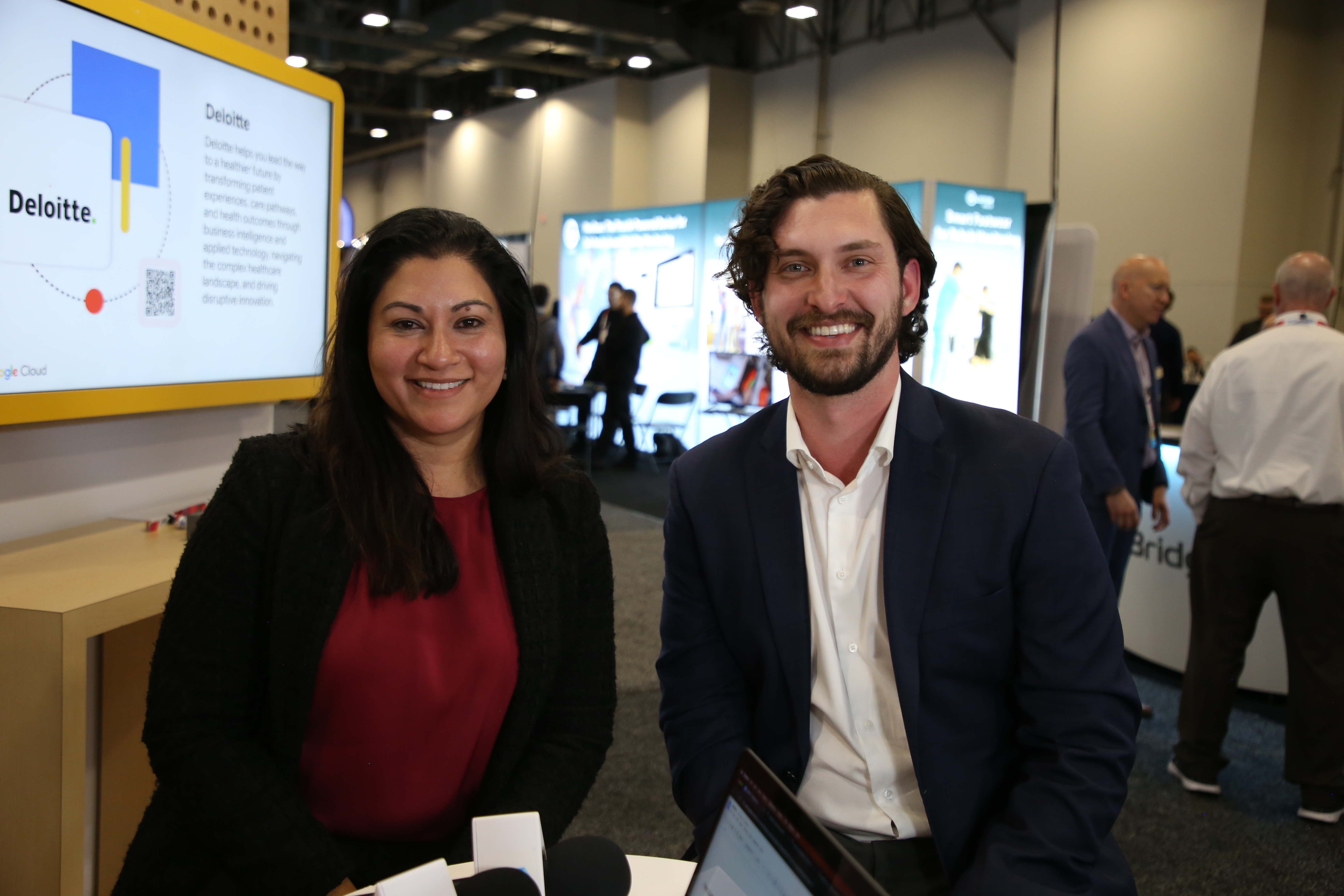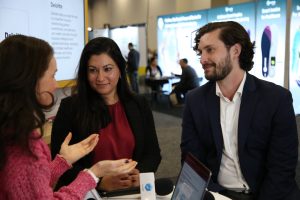 AI
AI
 AI
AI
 AI
AI
Artificial intelligence agents could be just what the doctor ordered, creating better, faster and more informed patient outcomes.
The current wave of agentic AI is poised to change how healthcare operates by speeding up the process of medical discovery, according to Tom Hittinger (pictured, right), healthcare applied AI leader at Deloitte Touche Tohmatsu Ltd.

Tom Hittinger, healthcare applied AI leader at Deloitte Touche Tohmatsu Ltd., and Schweta Maniar, global director of healthcare and life sciences at Google Cloud, talk with theCUBE about the development and application of AI in healthcare.
“Being able to make it easier to discover information, discover insights and shape the care that an individual provider is giving to a patient, that has the potential to really just change the way in which we’re driving patient outcomes,” he said. “Not just giving something that was a legacy recommendation and evidence-based guidelines from 10 years ago, but something that’s fresh on the bleeding edge that enables a patient to have information specific to them.”
Hittinger and Schweta Maniar (left), global director of healthcare and life sciences at Google Cloud, spoke with theCUBE’s Rebecca Knight at theCUBE’s Coverage of Google Cloud at HIMSS25, during an exclusive broadcast on theCUBE, SiliconANGLE Media’s livestreaming studio. They discussed the development and application of AI in healthcare. (* Disclosure below.)
Healthcare companies and medical institutions would benefit from scaling AI sooner rather than later, according to Hittinger and Maniar. Last December, Google Cloud launched AgentSpace, a one-stop shop for agentic AI that can source different types of data, structured or unstructured, to solve the task at hand.
“The [companies] who are realizing value are the ones who are not thinking about it from a point solution, but they are thinking about it across their entire enterprise, like a true digital transformation,” Maniar said. “We’re coming to a point where now, we’re having the boards and the leaders of these organizations not just wanting to experiment with these tools and AI, but it’s now becoming a fundamental foundation of their strategy moving forward.”
Agentic AI is a big deal for healthcare because it can transform the entire system, according to Hittinger. An AI agent might educate patients on unfamiliar medical terms, generate code, speed up the process of reviewing a patient’s medical history or even scan swathes of medical papers to deliver insights.
“AI in the first wave is more AI as an assistant: You prompt it [and] it responds,” Hittinger said. “But going from assistant to true collaborator is … I think, the real difference is how do you leverage these new agentic AI platforms and tools to not just do a single task, but to actually transform an entire process?”
Even though AI could have a big impact on healthcare, adoption takes time, and medical institutions have a lot of legacy technology in place. Transforming the whole system will take time, so the first step is proving that the technology works, according to Maniar.
“If you look at what are your biggest business problems … and identify what are the less risky, maybe quicker wins, they might not be as exciting, but you’re able to show in a very controlled manner how it actually can apply, and then you start scaling up from there,” she said. “That’s the biggest advice because you’ve got these pie in the sky ideas, but sometimes, the highest value opportunities might be the ones that might be perceived as not as exciting.”
Here’s the complete video interview, part of SiliconANGLE’s and theCUBE’s Coverage of Google Cloud at HIMSS25:
(* Disclosure: TheCUBE is a paid media partner for theCUBE’s Coverage of Google Cloud at HIMSS25. Neither Google LLC, the sponsor of theCUBE’s event coverage, nor other sponsors have editorial control over content on theCUBE or SiliconANGLE.)
Support our mission to keep content open and free by engaging with theCUBE community. Join theCUBE’s Alumni Trust Network, where technology leaders connect, share intelligence and create opportunities.
Founded by tech visionaries John Furrier and Dave Vellante, SiliconANGLE Media has built a dynamic ecosystem of industry-leading digital media brands that reach 15+ million elite tech professionals. Our new proprietary theCUBE AI Video Cloud is breaking ground in audience interaction, leveraging theCUBEai.com neural network to help technology companies make data-driven decisions and stay at the forefront of industry conversations.